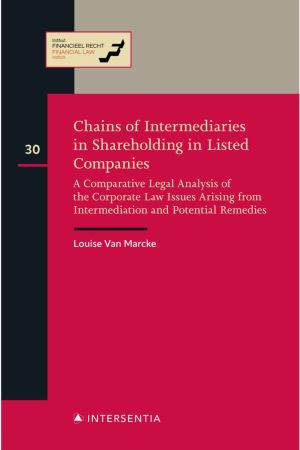
This book examines complex chains of intermediaries – which include financial institutions like banks, brokers, (global) custodians, and central securities depositories – and their impact on the exercise of shareholder rights in listed companies.
From a corporate law perspective, these intermediaries present both theoretical and practical challenges in the relationship between companies, shareholders, and end-investors (beneficial owners). When it comes to exercising shareholder rights, intermediaries’ presence may complicate, delay, and even prevent shareholders from effectively participating in corporate decisions, including voting at AGMs or pursuing legal actions.
What do these issues look like across different jurisdictions, and is change on the horizon? This book explores these questions through a comparative legal analysis, examining how these corporate law issues appear in European jurisdictions, the UK, and the US. In addition, it evaluates several solutions to these challenges, focusing on their ability to protect the interests of end-investors (beneficial owners) in listed companies. These solutions include the potential use of Distributed Ledger Technology (DLT), both within listed companies and across capital markets more broadly, as well as promoting enhanced direct holding methods, particularly within common law systems.